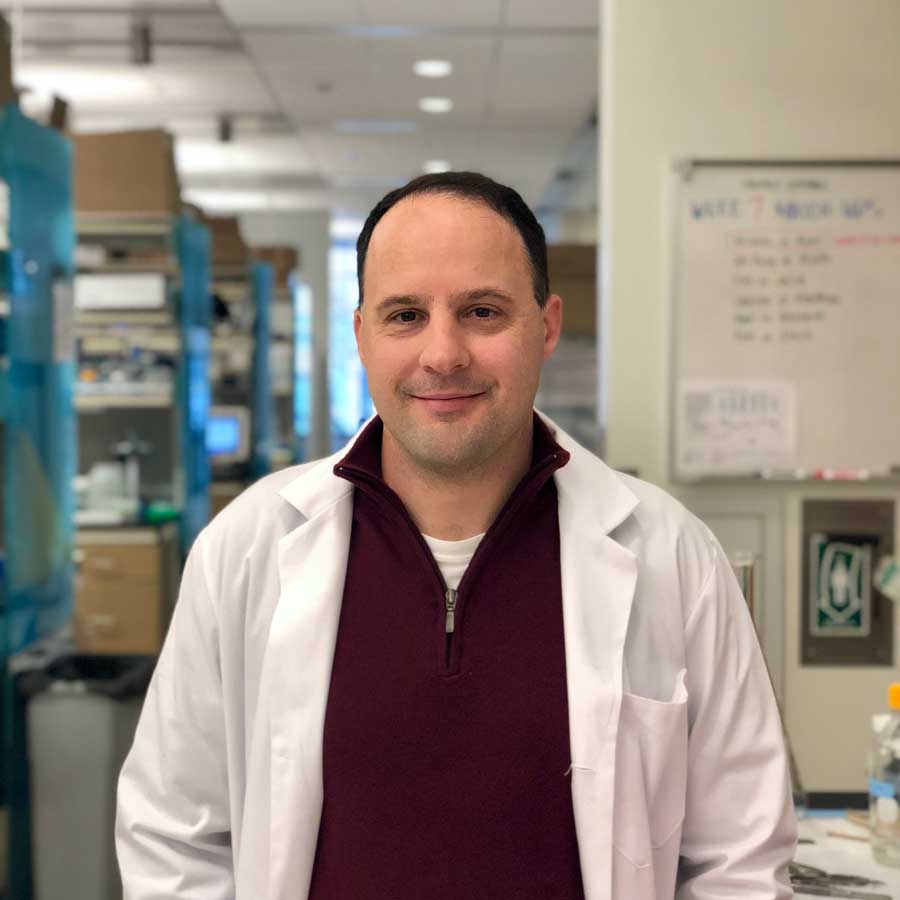Tian Laboratory
Research
The Tian Laboratory focuses on the roles of cell metabolism and mitochondrial function in the pathogenesis of human diseases. We take multidisciplinary approaches to engineer and interrogate the metabolic network in both cellular and animal models. Our ability to target molecular regulatory mechanisms in combination of rigorous metabolic phenotyping has led to groundbreaking discoveries in cardiometabolic research. The current research includes four main areas: energy metabolism of the heart, mitochondrial biology, stem cell metabolism, and immunometabolism. Dr. Tian is also interested in bi-directional translational research between the bench and the bedside to elucidate disease mechanisms and to develop novel therapies.
Contact
Email: mmcslu@u.washington.edu
Phone: 206-616-6256
Address: Box 358057 850 Republican Street, Room N130 (SLU), Seattle, Washington 98109-8057

Energy Metabolism
Energy metabolism is extremely robust in the heart. An adult human heart has the highest oxygen uptake rate in the body (~0.1ml O2/g/min at basal conditions); it generates and consumes (turnover) about 6 Kg of ATP daily, 15-20 times its own weight. Metabolic reprogramming has been recognized as integral of the pathological remodeling which ultimately leads to heart failure. In addition to its energetic impact, we recently demonstrated that metabolic reprogramming is required for the development of pathological hypertrophy. Our studies aim at identifying and disrupting the molecular mechanisms linking the remodeling of glucose, lipid, and amino acid metabolism to the signaling pathways leading to pathological growth of the cardiac myocytes.
Energy metabolism is extremely robust in the heart. An adult human heart has the highest oxygen uptake rate in the body (~0.1ml O2/g/min at basal conditions); it generates and consumes (turnover) about 6 Kg of ATP daily, 15-20 times its own weight. Metabolic reprogramming has been recognized as integral of the pathological remodeling which ultimately leads to heart failure. In addition to its energetic impact, we recently demonstrated that metabolic reprogramming is required for the development of pathological hypertrophy. Our studies aim at identifying and disrupting the molecular mechanisms linking the remodeling of glucose, lipid, and amino acid metabolism to the signaling pathways leading to pathological growth of the cardiac myocytes.

Mitochondria Biology
In addition to be the “powerhouse of the cell”, the mitochondrion is a signaling hub that regulates cell growth, survival and stress responses. Mitochondrial dysfunction has been observed in a variety of disease conditions. There is, however, no therapy for mitochondrial dysfunction up to date. We recently revealed a critical role of mitochondrial NAD(H) redox state in protein modification and stress tolerance. We are developing technology platforms with collaborators to investigate subcellular NAD(H) level and protein-protein interactions using novel biosensors and quantitative proteomics. Both basic and clinical research are ongoing to seek the molecular targets and therapeutic applications.
In addition to be the “powerhouse of the cell”, the mitochondrion is a signaling hub that regulates cell growth, survival and stress responses. Mitochondrial dysfunction has been observed in a variety of disease conditions. There is, however, no therapy for mitochondrial dysfunction up to date. We recently revealed a critical role of mitochondrial NAD(H) redox state in protein modification and stress tolerance. We are developing technology platforms with collaborators to investigate subcellular NAD(H) level and protein-protein interactions using novel biosensors and quantitative proteomics. Both basic and clinical research are ongoing to seek the molecular targets and therapeutic applications.

Immunometabolism
Activation of immune cells is associated with global metabolic rewiring. Proinflammatory activation of macrophage shifts it energy metabolism from oxidative phosphorylation towards glycolysis while transition to reparative macrophage is associated with enhanced oxidative metabolism. Our study determines whether mitochondrial function plays a driver role in the shift of macrophage metabolism and function, which could identify novel targets for modulation of innate immunity and inflammation.
Activation of immune cells is associated with global metabolic rewiring. Proinflammatory activation of macrophage shifts it energy metabolism from oxidative phosphorylation towards glycolysis while transition to reparative macrophage is associated with enhanced oxidative metabolism. Our study determines whether mitochondrial function plays a driver role in the shift of macrophage metabolism and function, which could identify novel targets for modulation of innate immunity and inflammation.

Stem Cell Metabolism
Mitochondria emerge as an important regulator of cell fate during the development. Multiple mechanisms have been proposed, such as, ROS elicited DNA-damage response, or mitochondrial metabolites for growth and epigenetic modifications. Our studies seek to identify and target mitochondrial mechanisms for promoting the maturation of cells derived from human induced pluripotent stem cells (iPSC). One of our focuses is the communication of mitochondria and other cellular compartments in the regulation of gene transcription and signal transduction.
Mitochondria emerge as an important regulator of cell fate during the development. Multiple mechanisms have been proposed, such as, ROS elicited DNA-damage response, or mitochondrial metabolites for growth and epigenetic modifications. Our studies seek to identify and target mitochondrial mechanisms for promoting the maturation of cells derived from human induced pluripotent stem cells (iPSC). One of our focuses is the communication of mitochondria and other cellular compartments in the regulation of gene transcription and signal transduction.
Opportunities
Postdoc Fellow
The Tian Laboratory is recruiting highly motivated postdoc fellows to lead projects on molecular mechanisms linking cell metabolism and mitochondrial function to the development of human diseases.
Lab Members

Rong Tian, MD, PhD
- Director, Mitochondria and Metabolism Center
- Professor, Anesthesiology & Pain Medicine
- Professor, Bioengineering
206-543-8982

Tim McMillen, PhD
- Research Scientist
- Mitochondria and Metabolism Center
206-543-8982

Dennis Wang, MD, PhD
- Assistant Professor, Division of Cardiology
- Mitochondria and Metabolism Center
206-543-8982

Lena Johnson, MS
- Lab Manager
- Research Scientist
- Mitochondria and Metabolism Center
206-543-8982

Matthew Walker, PhD
- Research Assistant Professor, Anesthesiology & Pain Medicine
- Mitochondria and Metabolism Center
206-543-8982

Durba Banerjee, PhD
- Postdoctoral Scholar
- Mitochondria and Metabolism Center
206-543-8982

Taylor Billings
- Graduate Student Assistant
- Mitochondria and Metabolism Center
206-543-8982



